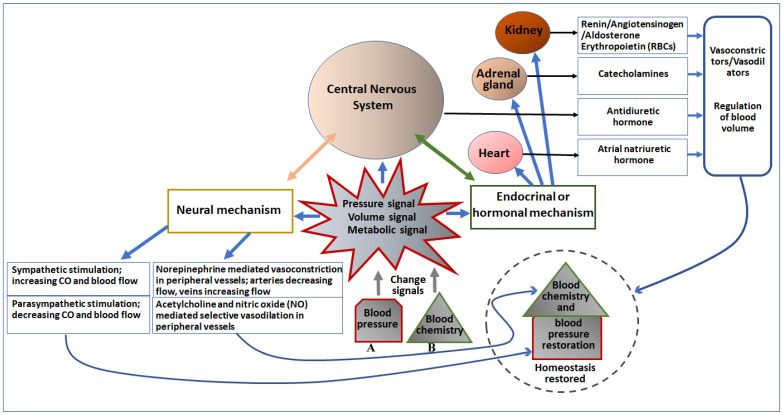Figure 2.
Diagrammatic representation of the effect of change in blood pressure (A) and blood chemistry (B) on major cardiovascular organs and the CNS, and regulation of blood pressure. Pressure, volume, and metabolic signals generated due to changes in blood pressure and chemistry primarily activate the neural as well as the endocrinal/hormonal mechanism of regulation. Both neural and endocrinal/hormonal components are connected to the CNS, which initiates neural signaling to directly control the blood pressure as well as blood chemistry, as depicted in the left portion of the figure. Moreover, the CNS (the brain) also secretes an antidiuretic hormone to regulate blood volume and chemistry. The endocrine/hormonal signaling is also mediated by the heart (secretes atrial natriuretic hormone), adrenal gland (secretes catecholamines), and kidney (secretes renin, angiotensinogen, aldosterone, and erythropoietin). These secreted factors regulate both blood chemistry as well as blood pressure (depicted in the right portion of the figure).

